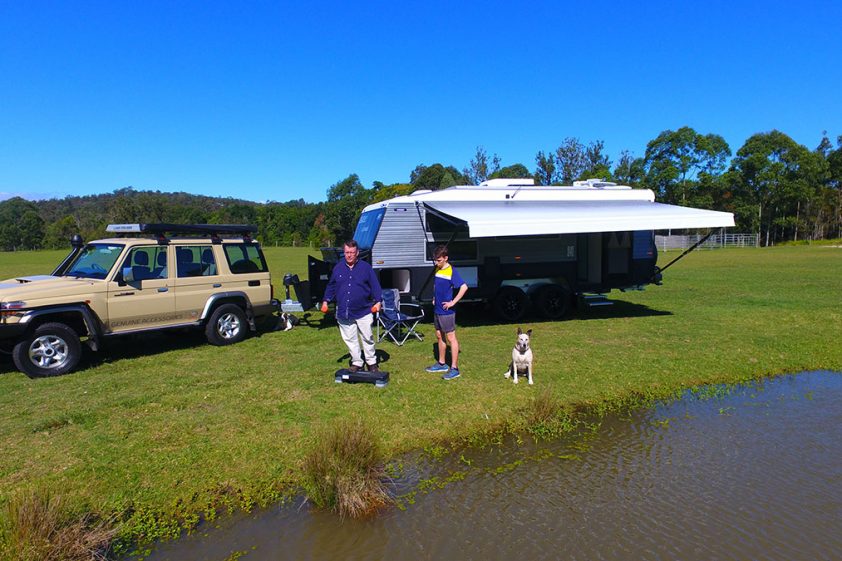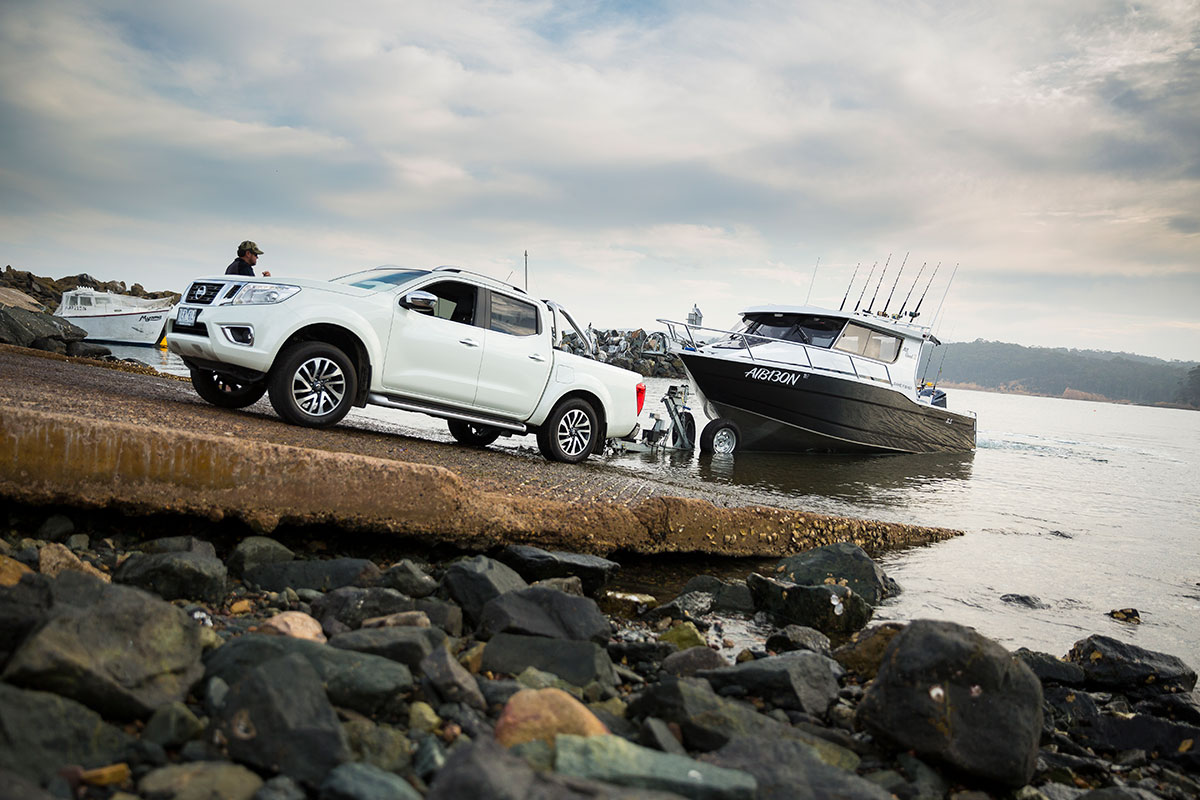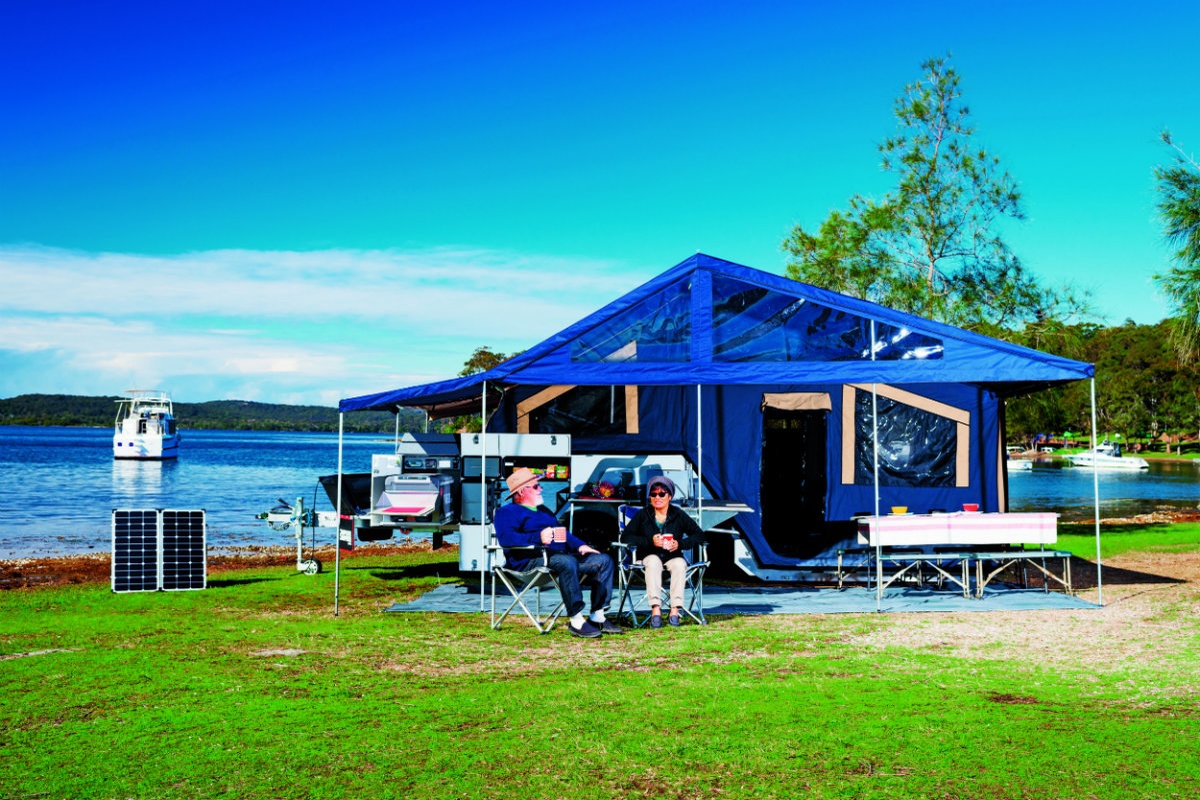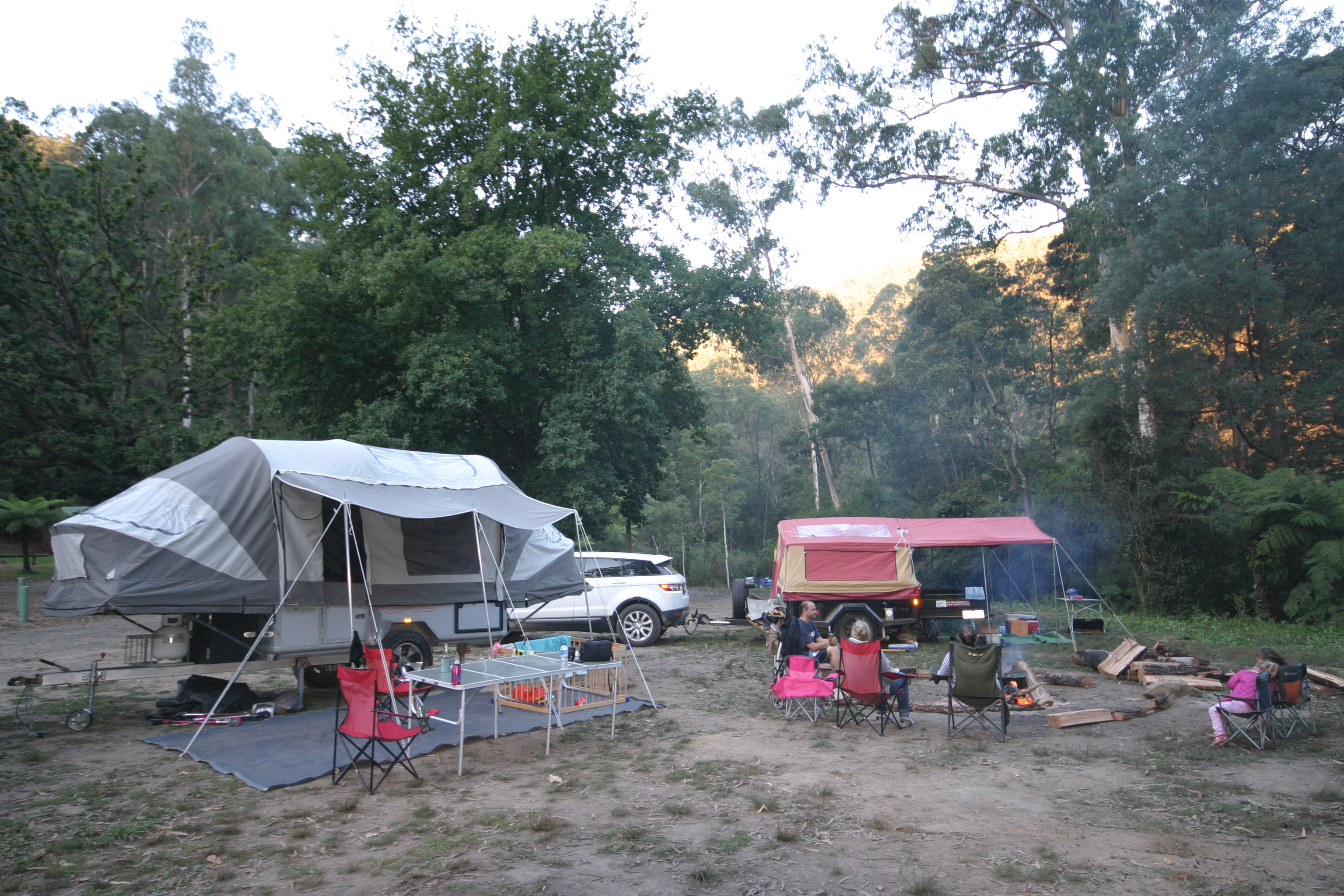The interesting side effect of hitting the road with an unadulterated sense of excitement and adventure is the occasionally sedentary lifestyle it can bring with it, such as long hours in the car.
Periods of inactivity and little physical exercise are a way of travelling life but it’s important for families to stay fit and healthy to get the most out of their caravanning or camping trips.
Maintaining a nutritional diet and regular exercise are good starting points – but how exactly do you do that when you’re faced with long driving legs, tired kids and unhealthy roadhouse snacks?
SENSIBLE DIET
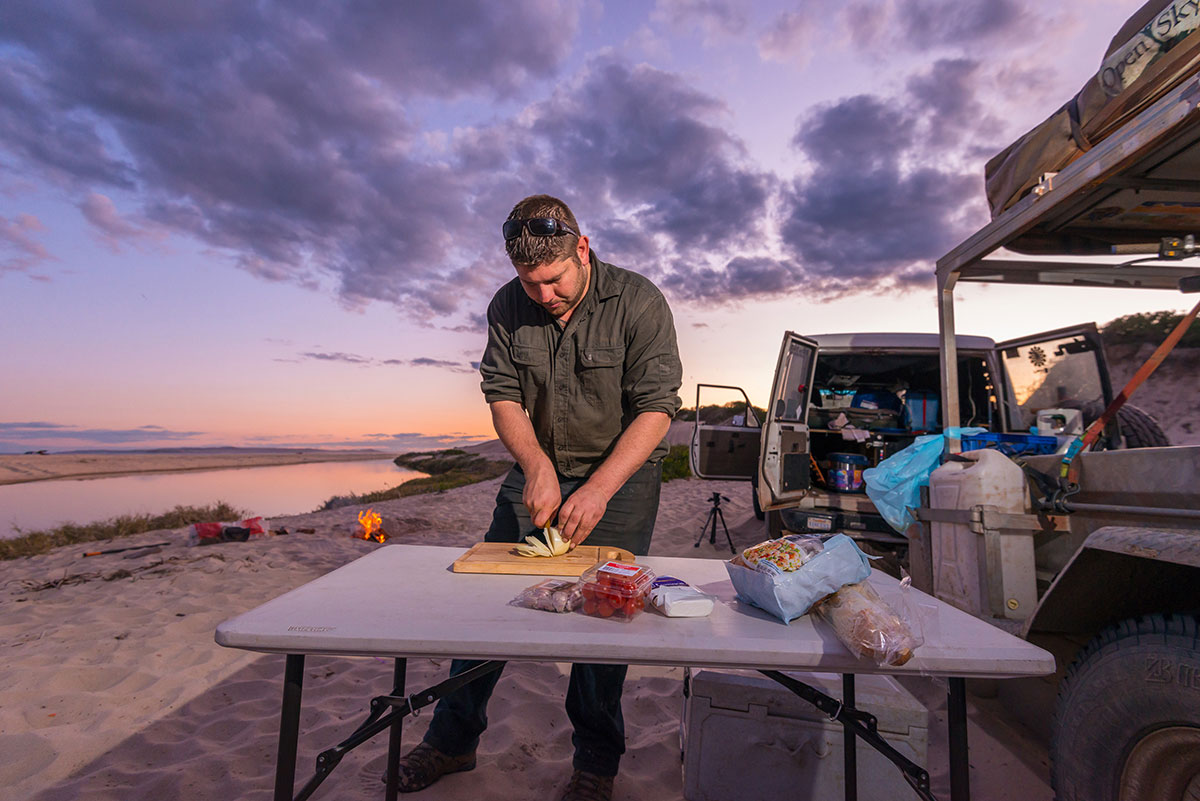
With some sensible planning, you can be your own diet god or goddess while travelling. You don’t have to become a spartan – or even a gastronomical martyr – it really is all about making healthy choices.
A diet focusing on proteins, fibre and low GI carbohydrates will have you stepping into life on the road. Dried legumes, lentils, chickpeas, brown rice, whole-wheat pasta and beans are in; takeaway food stops are out!
Diabetes Australia explains that carbohydrate foods that are digested more slowly raise blood glucose levels more slowly, and so have a lower glycaemic index (low GI foods) that can help control diabetes.
They can also reduce those hunger pains and assist you to manage or lose weight.
Plan your meals in advance, where possible, and take travel snacks in the car to avoid the temptation – or the annoyance from the kids – to stop at every roadhouse and stock up on chips and ice-cream!
Unable to counteract an attack of the munchies while on the road? Give the sugary treat in the glovebox the flick and chomp on a mix of nuts and sultanas instead.
Being on the road is no reason to eat unhealthily. Follow the same practices you would at home, such as reading the nutrition labels on packaged food to help you reduce excess salt and sugar intake. You’ll thank yourself for this one when the kids aren’t bouncing off the tent walls at 10pm!
BEST FOR BARBECUES
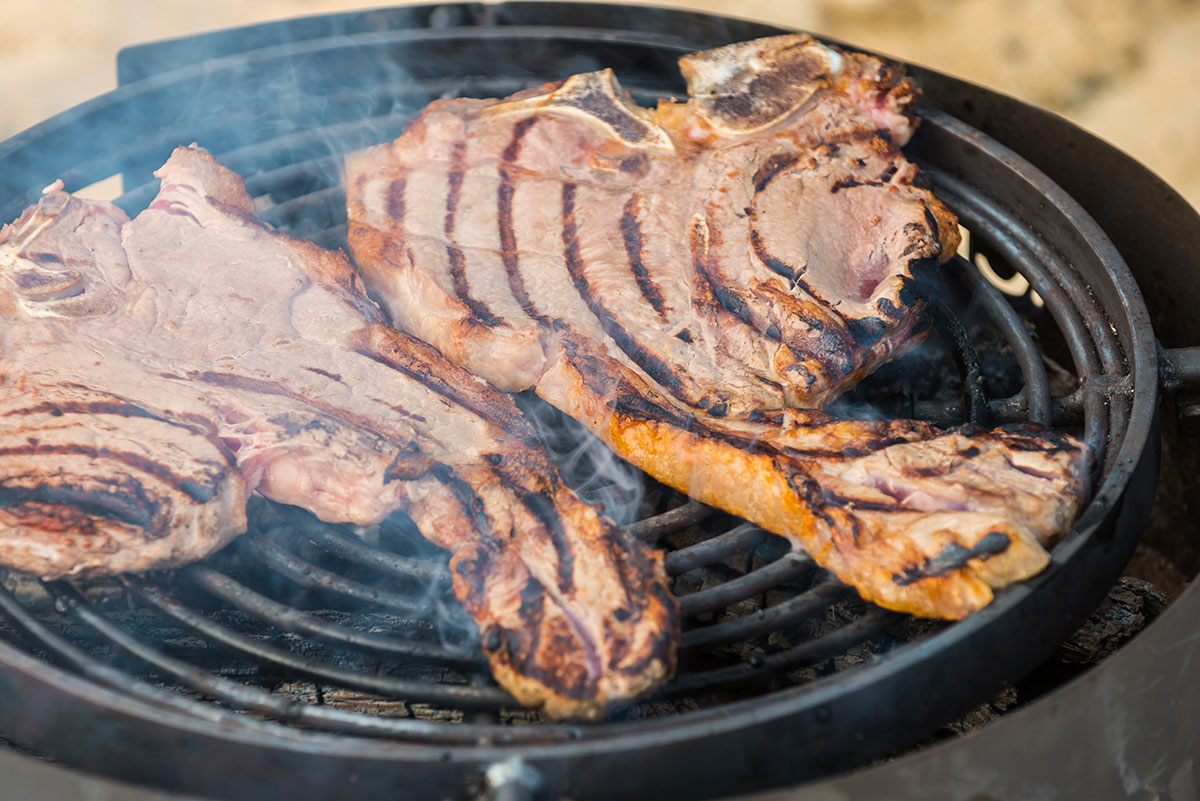
Barbecues or campfire cooking are basically a staple on most family holidays but, with a bit of planning and forethought, they can be a healthy, regular meal option.
Choose lean meats, fish or chicken over processed and fatty options like sausages or rissoles when firing up the barbecue. And balance the meal with fresh or frozen vegetables. If you’ve only got frozen veg, don’t worry, they’re still quite nutritious. You can also mix it up a little. Don’t just boil or steam veggies, try a barbecue vegetable stir-fry.
As for dessert, choose fruit that is tinned in its natural juices and not in syrup and forego the coal-baked chocolate bananas in favour of some fresh fruit every now and then!
HEALTHY HOUR
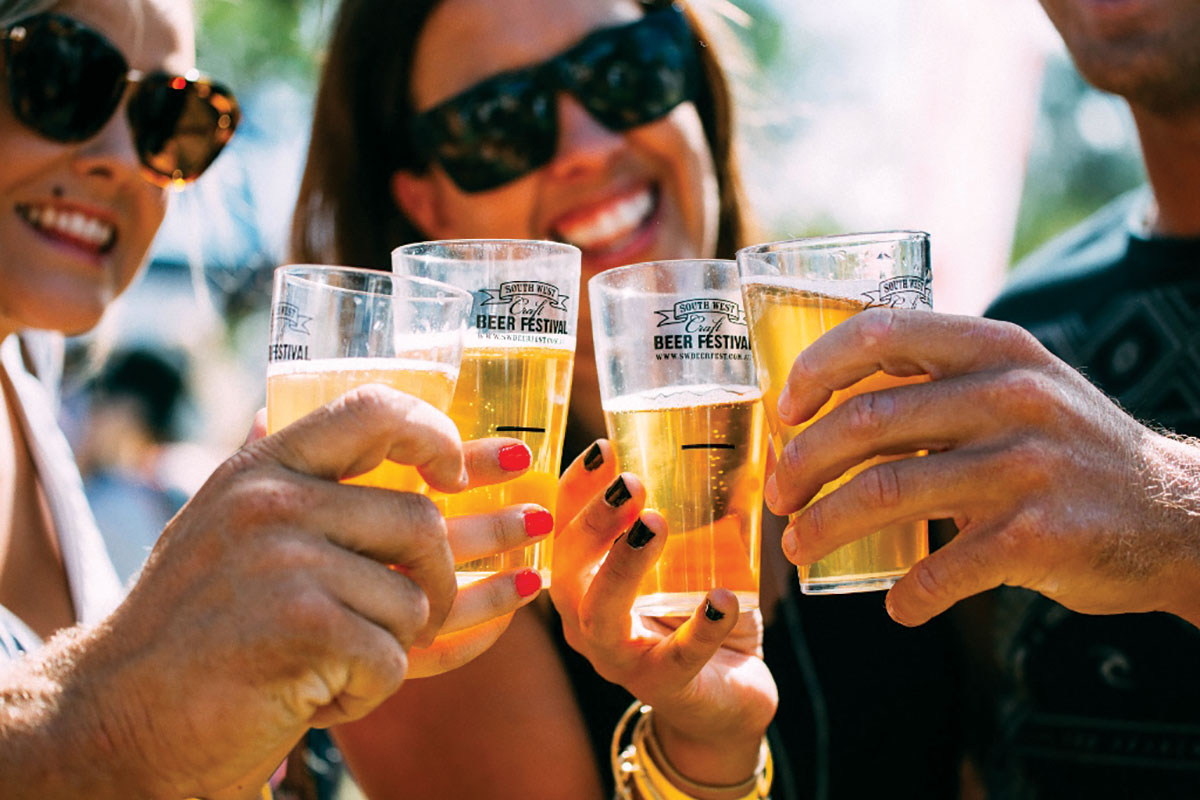
Who doesn’t love happy hour on a camping trip? For many, it’s the highlight of the day! But alcohol adds excess calories without any nutritional value at all, so it’s worth thinking about whether you need that first, second or third glass of wine or can of beer!
Best advice is to try and limit alcohol intake where possible, or to a maximum of two standard drinks in a day, with as many alcohol-free days per week as possible.
But then there’s the other side, where some studies suggest that red wine and high quality cocoa dark chocolate in moderation may have some antioxidant properties!
SHAPE UP
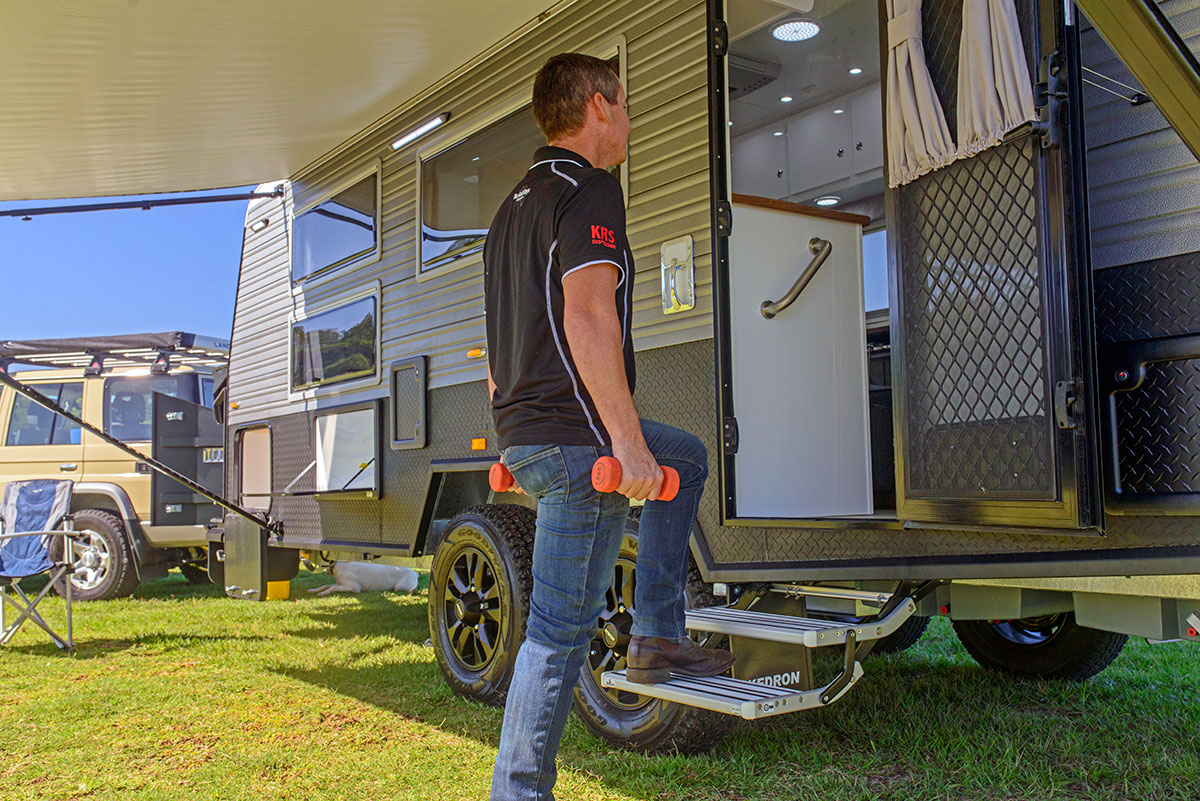
When the weather is fine and you’re in the great outdoors, it should be difficult to not get enough daily exercise for you and the kids. Bushwalking, kayaking, exploring, hill-climbing, even just running around a playground, will help the whole family stay active, and burn calories and excess energy!
But if you fancy a more structured approach, why not develop a flexible exercise routine that fits in with your travelling lifestyle? You don’t need a fancy city gym or even a shed full of fitness gadgets and machines to stay active.
Exercise is key to staying healthy because caravanners spend so much of their time sitting in a vehicle or watching sunsets. And the younger generation can join in the following travelling exercises:
Van sit – put your back against the van wall, and slide your back down the wall until your leg muscles are flexed and your core muscles are engaged in a sit. Then hold that position for five seconds after your muscles start to ache.
Caravan step – using the caravan step at the front door, with one leg step up and then back down and repeat a number of times. Then swap legs.
Balance exercises – stand and balance on one leg for 20 seconds. Then change legs and balance on the other leg for 20 seconds.
Bullbar push ups – these are like normal push-ups on the floor or knees but done by resting hands shoulder width apart on the front of the car or bullbar, bench or table, moving the feet back a as far as comfortable, bend your elbows to lower your chest to the bulbar; push back up and straighten your arms. Twenty brisk repetitions are ideal.
Camp chair sit and stand – consider sitting in your camp chair and standing perhaps 20 times before eating your meal. The trick is to not hold onto the arms of the chair as you sit and stand.
Walking – consider, two minutes of easy walking then one minute of long strides that will really help with hip mobility. Then 20 seconds of fast ‘hot feet’ walking. Then repeat that pattern three or four times.
Driver reviver – fast walking on the spot for one minute when you’ve pulled over at a driver reviver stop as an ideal break to the journey.
MEET THE AUTHOR

David Gilchrist
David Gilchrist is a Brisbane based journalist, author, radio presenter/producer and documentary filmmaker. As a filmmaker, David has worked with ABC Landline, ABC Compass and ABC Open. In radio he has worked in community radio as a presenter, a 4EB producer and ABC local radio as a community correspondent. David has produced on-line video content for ABC and several magazine and content providers. Beyond video production for his business 4G Production, he has written for a variety of publications including The Independent in London, Australian Geographic, Outthere and The Australian Newspaper, The West Australian and The New Zealand Herald, Caravan World and Camper Trailer Australia. The Queensland Hotels Association published David’s first book Raising the Bar and Penguin Random House published his second book Life in the Saddle which became a best seller in its genre.

